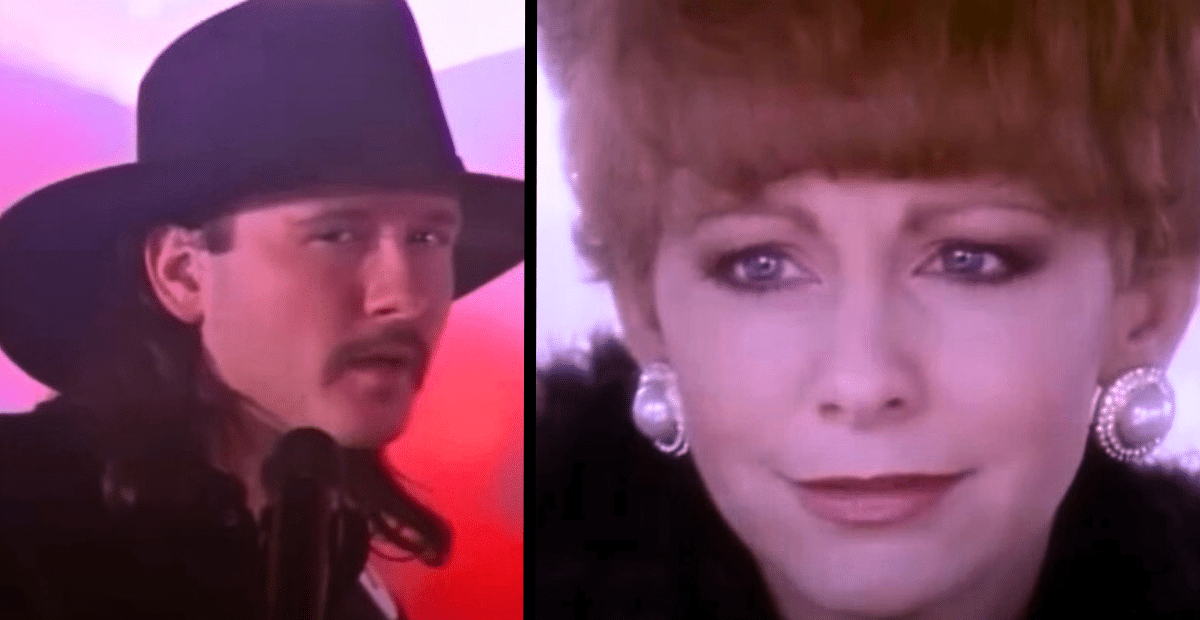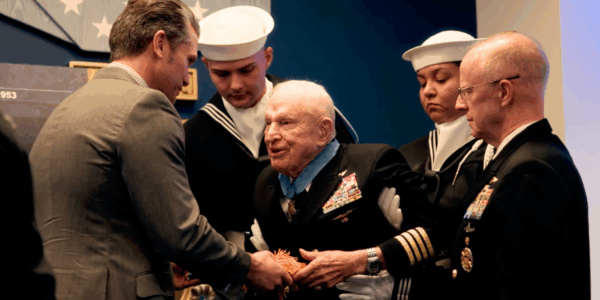7 ’90s Country Hits That Are Now Considered Offensive Today
on Dec 27, 2024 • Updated Jan 24, 2025

These 7 Country Hits From The ’90s Are Ones Some People Find Offensive Today
Some of the biggest hits released in country music during the ’90s are ones some modern listeners now find “offensive.” The reasons some listeners feel this way vary from song to song.
The 1990s are often hailed as country music’s “golden era.” Artists who took off during the decade include Alan Jackson, Brooks & Dunn, Martina McBride, and Travis Tritt.
There is no denying that attitudes, perspectives, and the general culture have changed significantly in the past few decades. Some sentiments and ideas that were once considered “okay” in the 1990s are ones modern country fans don’t agree with.
So, while the songs in this list were hits after their initial release, they don’t sit right with some modern listeners.
As this list continues, we’ll detail why some listeners find ’90s country hits such as Tim McGraw’s “Indian Outlaw” and Reba McEntire’s “Fancy” to be offensive today. Keep reading for those reasons and to learn the stories behind the songs.
7 Country Hits From The ’90s Some Modern Listeners Consider To Be Offensive…And Why
“Indian Outlaw” – Tim McGraw
Tommy Barnes, Jumpin’ Gene Simmons, and John D. Loudermilk co-wrote “Indian Outlaw.” Tim McGraw recorded the song and released it as a single in January 1994.
McGraw’s narrator introduces himself as a “half Cherokee and Choctaw” man who his friends call “Bear Claw.” He has a lover who’s “a Chippewa.” The song includes many Native American cliches, with mentions of tomtoms, wigwams, peace pipes, and headbands.
“Indian Outlaw” peaked at #8 on the Hot Country Songs chart and crossed over to claim the 15th position on the all-genre Billboard Hot 100. It was certified Platinum by the RIAA in 2022.
It’s possible “Indian Outlaw” could have been an even bigger hit. However, some radio stations reportedly refused to play the song, deeming it offensive because of its stereotypical characterization of Native Americans.
Now, three decades later, some modern country music fans find these stereotypes to be even more offensive today.
“Don’t Give Us A Reason” – Hank Williams Jr.
Hank Williams Jr. co-wrote “Don’t Give Us a Reason” with Jim Ed Norman. The track was featured on Williams’ 1990 album America (The Way I See It).
Williams released “Don’t Give Us a Reason” as a single. It peaked at the 27th spot on the Hot Country Songs chart.
Williams directly addresses Saddam Hussein in the lyrics. He tells him the United States is not afraid of him and his army, singing, “Don’t give us a reason, to come gunnin’ for you.“
Today, with some people having less-than-positive feelings about the Iraq War (which lasted from 2003-2011), “Don’t Give Us A Reason” doesn’t strike the same chord that it did in the ’90s.
“Working For The Japanese” – Ray Stevens
Ray Stevens is known as one of country music’s funniest artists. He frequently records novelty songs, including “Mississippi Squirrel Revival” and “The Streak.”
Stevens recorded another batch of comedic and satirical songs for his 1991 album Number 1 with a Bullet. One of those songs was the Ron DeLacy-penned “Working for the Japanese.”
Stevens released “Working for the Japanese” as a single. It peaked at the 62nd spot on the Hot Country Songs chart. Like many of his other hits, Stevens seemed to approach the song from a satirical angle.
But the sarcasm is lost on some modern listeners. They find the song’s distate for Japanese people and Japanese companies offensive. Modern listeners also aren’t fond of the stereotypical “Oriental” tune that plays throughout the song.
“Trashy Women” – Confederate Railroad
Chris Wall wrote the song “Trashy Women,” which Jerry Jeff Walker first recorded and released in 1989. But the most popular recording was released in 1993 by the band Confederate Railroad.
The group’s version of “Trashy Women” claimed the tenth spot on the Hot Country Songs chart. It also peaked at the 13th spot on the Bubbling Under Hot 100 Singles chart.
The narrator in “Trashy Women” says he comes from a sophisticated background. But he proclaims he likes his women “just a little on the trashy side.” He adds how he likes:
“When they wear their clothes too tight and their hair is dyed. Too much lipstick an’ too much rouge. Gets me excited, leaves me feeling confused.”
Today, some listeners consider this ’90s country hit to be offensive for objectifying women. Some modern fans also don’t appreciate how women are called “trashy” for certain ways of dressing and presenting themselves.
“Maybe I Mean Yes” – Holly Dunn
Holly Dunn co-wrote “Maybe I Mean Yes” with her brother Chris Waters and songwriter Tom Shapiro. She released the song as a single in July 1991.
“Maybe I Mean Yes” reached the 48th spot on the Hot Country Songs chart following its release. But the song may have been an even bigger hit if Dunn hadn’t made the choice to pull it from radio rotation.
Like Tim McGraw’s “Indian Outlaw,” Dunn’s “Maybe I Mean Yes” generated some controversy upon its release. Listeners took issue with one line in particular, when Dunn sings, “When I say no I mean maybe, or maybe I mean yes.”
Some listeners felt this line downplayed the importance of consent in relationships. After the backlash, Dunn asked to have “Maybe I Mean Yes” removed from radio. Her record label also said she’d stop performing the song live.
In more recent years, there’s been an even greater emphasis on the importance of consent and respecting romantic boundaries. Because of this, many modern listeners agree with the criticism aimed at “Maybe I Mean Yes” in the ’90s.
“You Ain’t Much Fun” – Toby Keith
Toby Keith was never afraid to speak his mind, even if he bothered a few people in the process. He also wasn’t afraid to record “unserious” songs, like “Red Solo Cup” and “As Good As I Once Was.”
“You Ain’t Much Fun” was another song of Keith’s that was meant to be more comical than anything else. He co-wrote the track with Carl Goff Jr. and released it as a single in March 1995.
“You Ain’t Much Fun” reached the second spot on the Hot Country Songs chart. It ranked at the 11th spot on the year-end chart for 1995.
Keith told The Boot that Goff came to him one day and listed off all the tasks he’d been working on around the house. He started these tasks after making a vow to stop drinking after fighting with his wife.
Goff hurt his hand working around the house one day. When his wife asked what was wrong, he responded, “You ain’t much fun since I quit drinking.“
After hearing Goff’s story, Keith asked him to write a song with him. That song turned into “You Ain’t Much Fun.”
In the lyrics, Keith bemoans being kept busy with chores like mowing the yard and painting the house ever since he stopped drinking. Yet, his wife never seems to be satisfied, prompting him to say how she’s no fun.
Some modern listeners are offended by Keith’s ’90s country hit since he portrays his wife as a nag whom he can only tolerate while drunk. Plus, some fans feel the tasks the narrator complains about are things he should already be helping with.
“Fancy” – Reba McEntire
Bobbie Gentry wrote “Fancy” and released her original recording in 1969. But the song’s popularity rose to new heights when Reba McEntire released her cover in February 1991.
McEntire’s version of “Fancy” peaked at #8 on the Hot Country Songs chart. Now, over 30 years later, “Fancy” is considered to be one of her signature songs.
But some modern listeners take issue with “Fancy.”
The song’s premise doesn’t sit right with some fans, who feel uncomfortable when hearing that the narrator’s mother sent her away and encouraged her to “be nice to the gentlemen” to dig herself out of poverty. The song continues to offend some modern listeners as Fancy reveals she made herself rich through her “relationships” with wealthy men.
Fancy herself dismisses such critiques in the song’s lyrics. She says those who look down on her mother’s actions don’t understand how desperate she was to ensure her daughter had a better life than she could provide. Looking back, Fancy carries no ill will for her mother. She believes her mother’s actions led her to the luxurious life she enjoys in the then-present day.
Reexamining These ’90s Country Hits In The Modern Day
Each song featured in this list debuted during an era when people thought and felt differently than they do today. To put it simply, attitudes have changed dramatically since the ’90s. That change in attitude has led some modern listeners to look at the seven tracks in this list in a less-than-favorable light.
There’s no denying that these songs were popular upon their original release. But, as we reexamine these ’90s country hits in the present day, we can acknowledge their success while also recognizing why some listeners now find them offensive.
For more content like this, check out our list of 7 ’80s Country Hits That Are Now Considered Offensive Today and our list of 11 Country Songs That Were Considered Controversial.


















